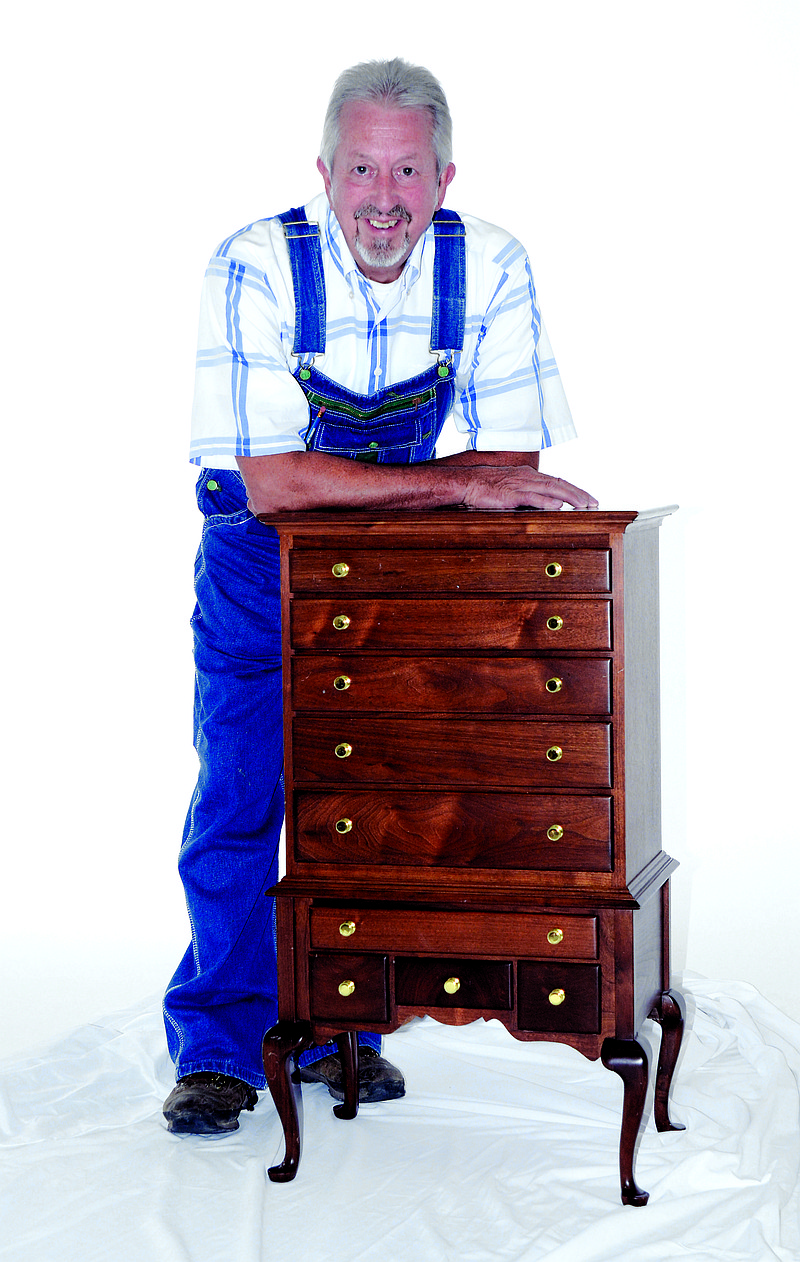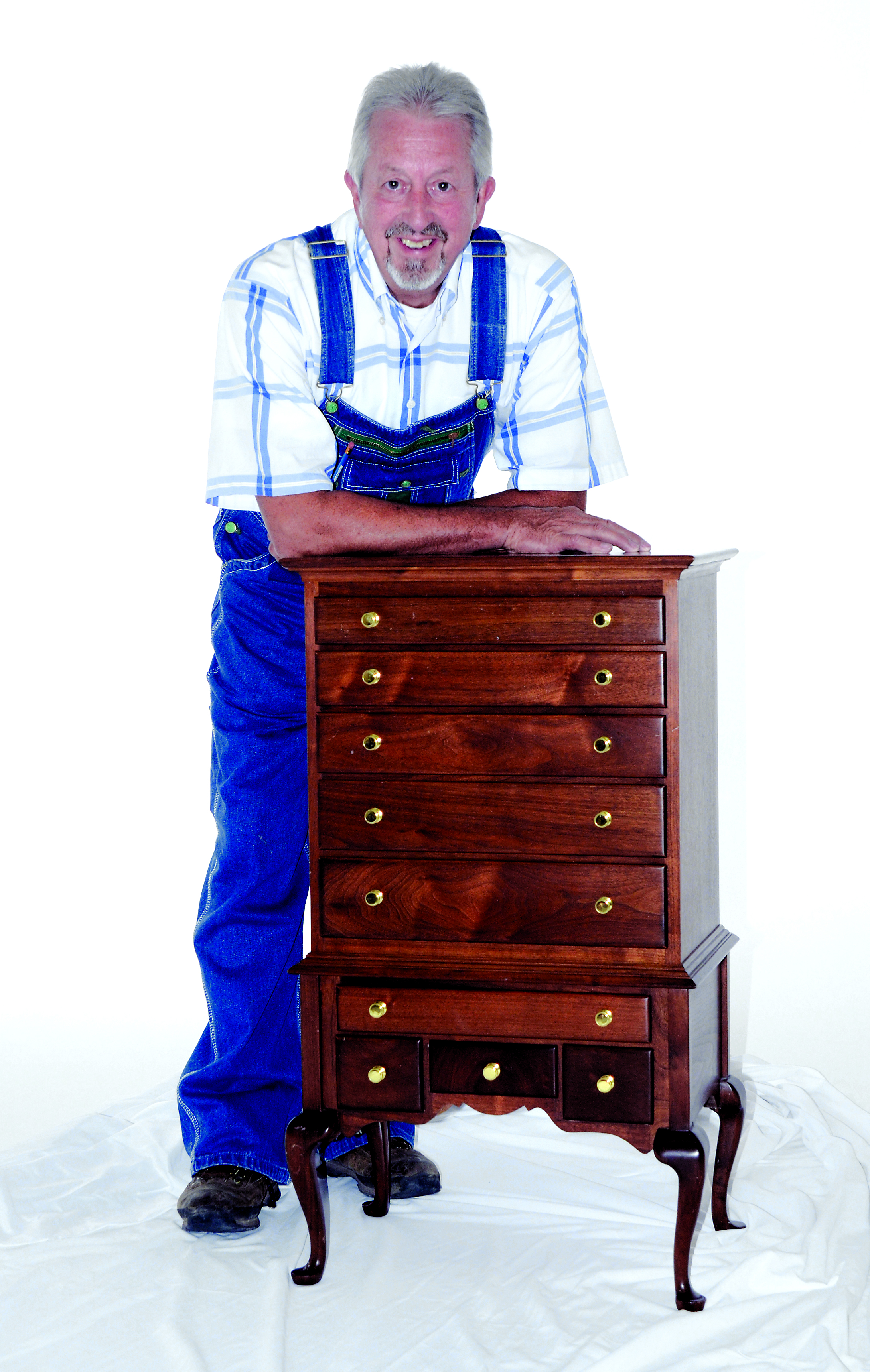ABOUT HIM
* Name: Bill Carney.* Age: 63.* Profession: Director of Chattanooga Woodworking Academy.* Education: 1966 graduate of Soddy-Daisy High School and 1971 graduate of Middle Tennessee State University.* Family: Wife Marty; children: Jesi Shahan, Will Carney, Emily Debuys; grandchildren: Taylor and Bailey Shahan.* Pets: Dalmatians Izzy and Pepper.* Favorite book: "The Old Man and the Sea."* Favorite movie: "Gone With the Wind."* Favorite music: Traditional old-time bluegrass.* Something that would surprise people to know about you? "I'm a great dancer -- rock 'n' roll, boogie-woogie, that's me. It was a great way to attract women when I was younger. I can't carry a note, but I can dance. I feel the music."
Bill Carney knows the value of hard work.
As a young boy, he began helping his dad remodel houses. By age 16, he could build a house single-handedly, he said. As an adult, he has taught high school students woodworking and carpentry skills.
Today, when many people his age are retiring or contemplating it, Carney is starting a new business. His Chattanooga Woodworking Academy is a school where adults can learn how to build anything from furniture to houses and log cabins. Like he felt at his college graduation more than four decades ago, Carney is excited about his future.
Q: How long have you been interested in woodworking?
A: Since I was a young boy. My dad built houses and remodeled them. He worked at DuPont, but on the side he was a builder. I have done carpentry work since I was 12. By 16, I could lay out a house and build it by myself. I was the kid in school who could tape a piece of butcher paper on the wall and draw anything. I also was an artist. When in college and I'd come home for summer, I had a job as a sign painter. I also painted race cars, buildings and storefronts. I loved it.
Q: What was your college major?
A: I started in pre-engineering, but when I got into the math courses I changed my major to industrial management. I took courses in welding, woodworking, machine shop and electronics. When I got into the woodworking courses, I discovered it was what I wanted to do with my life. I had a teacher in college, Robert Dalton, who was a master furniture maker and philosopher. He recognized that I had talent, and he pushed and challenged me. He changed my life. Because of him, I took all the woodworking courses offered. I started up a business on the side and advertised in the college newspaper. I picked up a lot of work with staff members and professors. I was allowed to use the woodworking tools in the shop classes, so that's where I spent most of my time.
Q: What was your first job after graduating from college?
A: I had job offers from Combustion, DuPont, Ford Motor Co. and more, but I didn't want to work in a plant. One summer while home from college, my dad got me a job working at DuPont. It reinforced my idea that I wanted to work for myself. I was still doing sign-painting and woodworking on the side, but I wanted to teach, too. My adviser in college told me that if I wanted to teach shop, a lot of positions were available. I knew that if I started teaching, I'd have access to tools. At the time, the state (Tennessee) was building vocational schools, so I knew there would be new schools, new shops, new tools and a fresh environment. I went back to Middle Tennessee State University and got certified in teaching.
Q: Where did you teach?
A: I first taught at Oak Ridge High School, where there was a new shop, and they paid more money than anyone in the state. I stayed three years. While I was there, I met my wife, who also was from Chattanooga, and we decided to move back to Chattanooga to be closer to our families. I took a job at Sequoyah Vocational School and stayed there for several years. I left public schools because I had two kids and was making just $13,000 a year. The kids that took courses from me graduated and were making twice my salary. I had woodworking business on the side and realized I could make more money working for myself. I built a small shop on my dad's farm, and the first year I made $40,000. There was no turning back. And by that time I had three kids.
Q: What was your first lucrative job as an independent carpenter/woodworker?
A: I was fortunate to meet Tommy Lupton at the first home show at the (Chattanooga Convention Center). I had a booth where I was showing my handmade cabinets and other things. I'm a classically trained bench mechanic, and in the old days a bench mechanic was known as a highly skilled worker. Mr. Lupton recognized that. He had just started building Heritage Landing, and he loved my stuff. I eventually got the contract to put kitchen cabinets in Heritage Landing. The job launched me into business.
Q: When you could be coasting into retirement, you, instead, are starting a new business. Why?
A: I want to share my training and experience as a professional in the woodworking field with others. I want to teach people that working with your hands to create both functional and artistic woodwork is possible as a career as well as a vocational endeavor. Chattanooga Woodworking Academy will create a culture of craft in Chattanooga. By being interactive and cooperative, the graduates can share the cost of marketing and advertising their handmade goods nationally and ultimately internationally.
Q: How do you think Chattanooga Woodworking Academy will benefit Chattanooga?
A: When tourists and visitors come to Chattanooga, Chattanooga Woodworking Academy will be on their list as a place to see students at work and purchase a high-quality wooden product that will have "Made in Chattanooga" on it. The culture of craft that we'll develop will be another of the successful ways Chattanooga continues to build itself as one of the best midsize cities in America.

